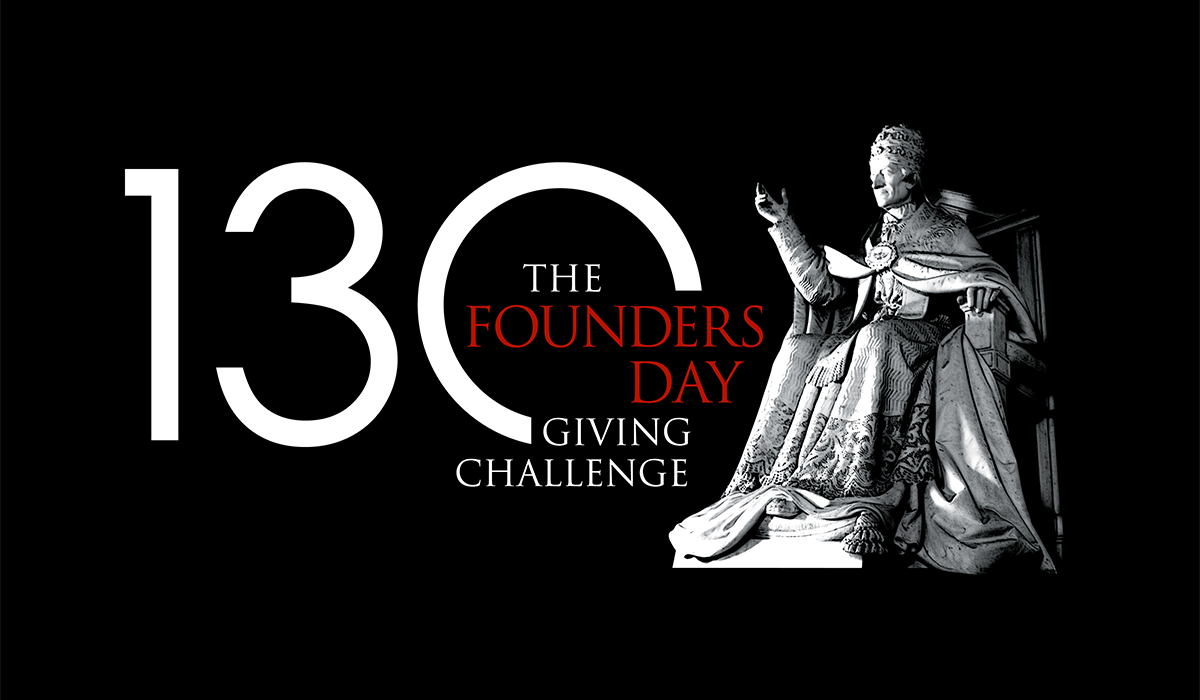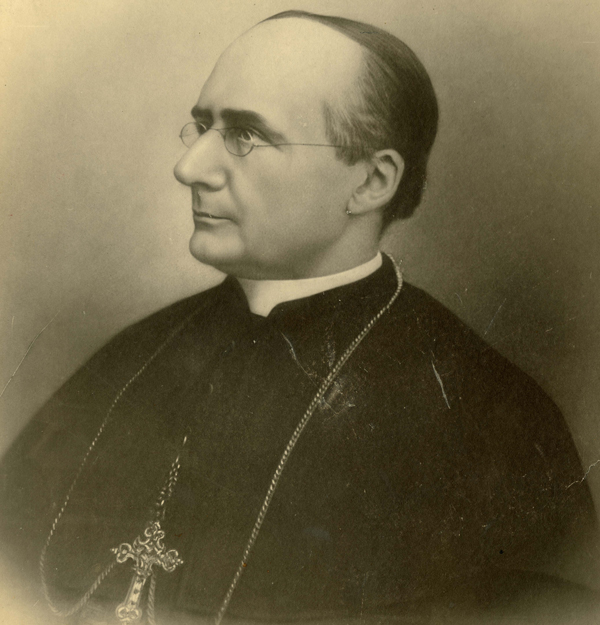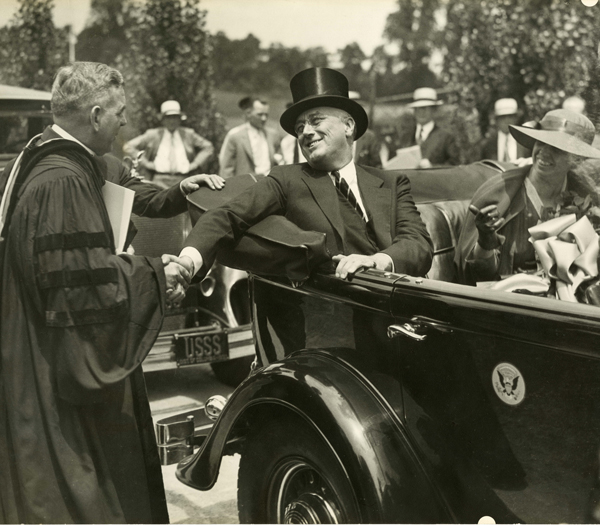

On April 10, 1887, Pope Leo XIII wrote to Cardinal James Gibbons, archbishop of Baltimore: “We … most gladly welcome and heartily approve your project for the erection of a University, moved as you are by a desire to promote the welfare of all and the interests of your illustrious Republic.”
With these words, Pope Leo XIII founded The Catholic University of America in the nation’s capital. Today, as we celebrate the 130th anniversary of our founding, it is fitting to look back on our history with gratitude for the many blessings we have received and to look ahead to our future with hope as we chart a course for years to come.

The Catholic University of America was little more than an idea when Pope Leo XIII gave his blessing to the American bishops’ plan for a national Catholic university. It had no buildings, no faculty, and no students. The University’s first rector, Bishop John Joseph Keane, had never attended a university, let alone founded one. But the founders had a clear vision for the fledgling institution. It was to be a research university, “faithfully Catholic,” “thoroughly American,” and adapted to meet the “needs of our age and country.” Through scientific research and teaching, the University would educate students who could engage the culture, teach and defend the faith with eloquence, and make a distinctively Catholic contribution to the rapidly expanding world of knowledge.
When Catholic University opened its doors in 1889 there was only one faculty, theology, with just four ordinary professors. There were 37 students — all of them priests or seminarians. They ate, slept, prayed, and studied in Caldwell Hall. From this seed, Catholic University has grown and adapted. We now educate undergraduate and graduate students across 12 schools and 22 research facilities. With 176 acres in Northeast Washington, D.C., we can boast of having the largest, greenest campus in the nation’s capital.
In addition to getting a world-class education, our students take part in a vibrant faith life through worship and service. More than one-third of our students participate in Division III athletics. In addition to campus activities, Catholic University students take advantage of cultural and internship opportunities that Washington, D.C., affords them.

Throughout its history, Catholic University has played an important role in informing the thinking of the Church, shaping public opinion, and educating Catholic minds for nearly every discipline. Our University has been an important landmark where the paths of scholars, saints, popes, and presidents have crossed. Today, Catholic University remains faithfully Catholic, thoroughly American, and committed to serving the needs of our age and country.
We continue to serve the Church by educating priests and seminarians from around the world to be leaders in the Church. Five of the six cardinal archbishops in the United States are graduates of Catholic University, and more than 90 diocesan seminarians are currently in formation at Theological College. Our service to the Church in the 21st century has required us to expand our scholarly reach to wherever the Church engages the culture.
We train musicians to serve the Church as organists, conductors, music directors, and composers in the Institute for Sacred Music at the Benjamin T. Rome School of Music. In addition to training in theology, philosophy, and canon law, we prepare priests and seminarians for the responsibility of parish administration by offering a workshop on “Management as Ministry” in the Tim and Steph Busch School of Business and Economics. We equip men and women working in Catholic health-care institutions to apply the principles of Catholic moral theology in complex clinical settings in our Catholic Clinical Bioethics program.
We are also finding new ways to serve our country and the world. Students in the School of Engineering are taking on humanity’s toughest problems in health, energy, security, infrastructure, and education as participants in the National Academy of Engineering’s Grand Challenge Scholars Program. Drawing on the wisdom of Catholic Social Doctrine, the Busch School of Business is providing future business leaders with the moral and intellectual formation necessary to build a more humane economy, and the National Catholic School of Social Service advances the science and theory of helping our most vulnerable populations. In the School of Nursing we are addressing the nation’s nursing shortage by training competent and compassionate nurses.
We also prepare students for principled careers in public service. The Department of Politics has developed an Intelligence Studies program to provide students interested in the intelligence profession with the knowledge they need about intelligence collection and analysis, counterintelligence and covert action, and the accountability of intelligence that our democratic system requires. The Center for the Study of Statesmanship has been established to promote research, teaching, and public discussion about how statesmanship can defuse conflict and foster respectful foreign and domestic relations.
When Pope Leo XIII gave his blessing to The Catholic University of America, he predicted that the University was "destined to provide the Church with worthy ministers for the salvation of souls and the propagation of Religion, and to give to the Republic her best citizens." Surveying Catholic University’s rich history, I am proud to say that Pope Leo XIII was right. I am confident that Catholic University will continue to find new ways to form worthy ministers for the Church and faithful citizens for years to come.
— John Garvey